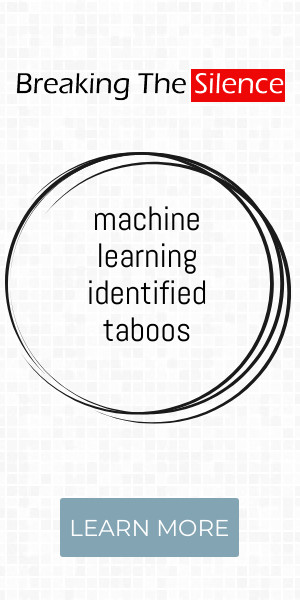The Duchess of Cornwall has told how “harrowing” stories of domestic violence have reduced her to tears and helped her support a friend, as she urged sufferers to speak out to break the “taboo“.
The Duchess, a long-term supporter of women’s charities, said she had been “shocked and horrified” at how many people have suffered domestic abuse and still live with the consequences.
“But with each story that is told, the taboo around domestic abuse weakens and the silence that surrounds it is broken, so other sufferers can know that there is hope for them and they are not alone.” She added: “Now Ladies and Gentlemen, as you mark this anniversary and look to the future, you give us all hope that those survivors can live their lives in peace, and be victors, not victims of these horrendous crimes, hopefully ensuring that domestic abuse can be made a crime of the past for ever.”
“Before Safe Lives, she said that it wasn’t in her awareness and now she has an understanding that she can use to help other people when they have something to share on that topic.” Rachel Williams, who lived with domestic abuse from the age of 21 to 39, said the Duchess now encourages anyone with daughters or granddaughters in relationships to talk openly about the issue.
“People don’t realise that the biggest killer of women aged 16-44 is not cancer, it’s domestic abuse.” Safe Lives CEO Suzanne Jacob said: “To have such incredible support from somebody with the profile and platform that the Duchess does when she has got so many demands on her time – the fact that she is really committed to this as a topic and to us as an organisation means a great deal to us and to the many survivors and frontline workers, because they see and hear and feel that viscerally, that she cares about them.
The “taboo” subject of domestic abuse should be brought out into the open and discussed, the Duchess of Cornwall has said before International Women’s Day.
Speaking at the launch of the 10th annual Women of the World festival at the Southbank Centre in central London, the duchess said domestic abuse was everyone’s problem and the solution must be, too.
She said: “The campaign to end domestic violence needs voices of men as well as women, challenging the cultural, economic and political context in which we all experience the world.
Camilla also stressed that domestic violence is a complicated issue that affects men as well as women and that society has a fundamental part to play in changing behaviour.
In the UK, one in four women will suffer domestic violence in their lifetime and at least two women are killed each week by current or former partners.
It is widely hoped that the domestic violence bill will finally pass during this parliament, covering a range of issues including banning the cross-examination of victims by their abusers in family courts and requiring tier one local authorities to provide support and ensure safe accommodation for survivors and their children.
Last month, the duchess said domestic abuse can affect anybody, regardless of social standing or wealth and implored those suffering to seek help.
 “Nothing makes you immune to domestic abuse happening,” she said.
“Nothing makes you immune to domestic abuse happening,” she said.
Nazeli and her mother are the latest victims of the heinous crime of domestic violence; equally disturbing, however, is the way domestic violence is handled in Armenia.
The country’s law on “Preventing violence in the family, protecting the victims of violence in the family, and restoring harmony in the family” adopted in December 2018 did not actually criminalize domestic violence.
The protections the law does offer people who have been subject to domestic violence include fines for the perpetrator and, depending on the severity of the situation, protection orders for various lengths of time – with the longest being a six-month ban on communication with the victim, with two possible three-month extensions.
Despite its inherent weaknesses, the passing of the law was, at the time, considered an important milestone in the fight against domestic violence in Armenia.
The law is, no doubt, an important weapon in the fight against domestic violence and should be urgently reformed.
Alongside legal reform, a major cultural shift is essential to effectively address domestic violence in Armenia today.
Indeed, domestic violence is such a taboo in Armenian society, many will deny it even exists.
But the fact remains that domestic violence is a big deal everywhere in the world, and Armenia is no different.
And just to confirm how big a deal it is: according to official figures, 378 cases of domestic violence were investigated by the Republic of Armenia police in the first 10 months of 2019.
So yes, alongside the preventive and protective hand of the law, we need to talk about domestic violence, to call it out as the despicable act that it is, to educate people about it.
It was an unprecedented step for an Armenian leader to visit a domestic violence victim.
Now, Pashinyan’s administration must walk the walk by undertaking appropriate legal reform and implementing policies that raise awareness of domestic violence. #IWD2020: From Saudi Arabia to Palestine, women in the Middle East are fighting against gender-based violence and sexual harassment.
They are used to stigmatise victims of domestic violence and to control behaviour.”
They are used to stigmatise victims of domestic violence and to control behaviour
Around one in four women are likely to be subject to domestic violence in Yemen, Morocco, Egypt, Sudan, and Algeria, according to a study carried out by Princeton University.
Men are also likely to suffer domestic abuse in every single one of the countries surveyed.
That means 1.5 million women in Egypt are victims of domestic abuse every year.
Even though the Egyptian constitution dictates that women should have protection against violence, domestic violence isn’t criminalised under national law.
According to the same study by Princeton University, most victims of domestic violence will turn to a family member for support.
These two factors together mean that many do not look to the state for help or authority, and that family life still dictates the future of domestic violence victims.
Almost half the countries in the Middle East and North Africa in the past five years have enacted laws addressing domestic violence, according to Human Rights Watch.

Women are left exposed to domestic violence under an oppressive male guardianship system which leaves them little or no safe havens when they face abuse.
Follow her on Twitter @GaiaCaramazzaAMMAN – Hundreds of women in Saudi Arabia are taking to social media to share their experiences of sexual harassment in a rare exploration of a taboo topic in the ultra-conservative kingdom.
AMMAN – Hundreds of women in Saudi Arabia are taking to social media to share their experiences of sexual harassment in a rare exploration of a taboo topic in the ultra-conservative kingdom.
The Duchess of Cornwall has told how listening to the “horrific” stories of survivors of domestic abuse motivated her to help tackle the “taboo” around discussing the issue.
“And this was particularly apparent in the areas of domestic abuse and sexual assault, two issues that I care very deeply about.
Camilla said she was “proud” to become patron at SafeLives, a domestic abuse charity which she has worked closely with in the last four years.
She recalled attending a charity meeting to listen to women’s experiences of domestic abuse, after which “there wasn’t a dry eye in the place”.
The duchess also expressed fear that the coronavirus pandemic would have a “horrific” impact on domestic abuse.
The duchess said progress was being made and called for the issue of domestic abuse to be more openly discussed, with more training of volunteers and teaching of young people about “healthy and loving relationships”.
The duchess added: “It’s been a taboo subject for so long that people just haven’t talked about it.
Actress Divya Dutta feels it is a good thing that we are at least openly talking about domestic violence against women now, thanks to social media, but says it is going to take many years to fully eradicate the social menace.
Divya Dutta had just starred in a short film titled “The Relationship Manager”, which addresses the issue of domestic violence.
“Domestic violence is one of the issues that we not only need to address, but also continue to talk about.
“Women have to learn to deal with domestic violence than just take it in their stride, thinking ‘log kya kahenge’ .
Whenever they face domestic violence, instead of being silent they should speak their mind.
As society, instead of tagging it as taboo, we should be supportive,” added Divya Dutta.
Protesters with a banner reading “Women’s Strike” take part in a rally against the Polish government’s plans to withdraw from the Istanbul Convention on prevention and combating of domestic violence, in Warsaw, Poland, July 24, 2020.
In reality, the Council of Europe Convention on Preventing and Combating Violence against Women and Domestic Violence promotes protections for women and girls trying to escape abuse or seek justice.
Organizations working with women survivors of violence say the fact that Poland reports fewer cases of domestic abuse than other EU countries merely reflects how taboo the issue remains.
“The whole existence of domestic violence has been denied,” the leader of an organization in western Poland told me.
As reports of domestic violence rise during the Covid-19 pandemic, including in Poland, governments should shore up protections rather than dismantle them.
No matter how enlightened a society may view itself, taboos exist and are deeply ingrained.
But in times of life-changing crisis they become more visible, says taboos researcher Dr Sabine Krajewski.
From domestic violence to mental illness, taboo subjects have been pulled into the open, impossible to ignore, as the pandemic has upended life as we know it.
“Once you talk about a taboo, it is the start of lifting it, and dealing with it as an issue,” Krajewski explains.
“All cultures have taboos.
To decide which taboos are worth having and which ones we should dismantle, is sometimes difficult.
“In Western cultures particularly we see taboos as bad things we should get rid of, and very often that is true but not always.
They also protect a society – imagine if there were no taboos and you could ask anything you want in any situation; it would be pretty terrible.
“But to decide which taboos are worth having and which ones we should dismantle, is sometimes difficult.
Krajewski, whose research has explored taboos in relation to silence, spitting, menstruation and menopause, runs a workshop titled ‘Taboo: health issues around the world’, as part of Macquarie University’s Global Leadership Program.
Since the pandemic struck, the workshop has been in demand, with students eager to explore taboos in relation to COVID-19.
Here are some of the new taboos the workshops have identified that may be appearing – and old ones the pandemic may be helping to erode.
Spitting in particular is set to become even more entrenched as a taboo, Krajewski says, while coughing and sneezing – largely involuntary acts we paid scant attention to before – have joined it in the cross-hairs.
“Spitting is a social taboo in many countries, but during this time it becomes a real taboo, and my workshop students tell me they feel they get looks that are a mixture of fear and disgust even if they sneeze or cough.
“There are incidents of people who have spat on police or hospital staff, which has never been seen as a polite thing to do of course, but whereas normally you would get a fine, now you can be incarcerated because it shows an intent to transmit a disease … so it makes this taboo, which is connected to a heightened sense of how important hygiene is, stronger.

Asking people what they do for work is a common conversation opener, but Krajewski’s workshop students believe this may become taboo as people lose their jobs, or are forced into completely different fields of work because their industry has so few opportunities.
On the flip side, receiving government assistance may become less of a taboo given the number of people who have lost their jobs and been forced to turn to Centrelink.
Domestic violence
Domestic violence is a global taboo which has been brought further into the open by COVID-19 as isolation in the home, job loss, home-schooling and increased use of alcohol all contribute to an increase in its incidence.
It is a very sensitive subject where the taboo protects the perpetrator, not the victim, Krajewski says.
“On the one hand the pandemic might dismantle the taboo because it is in the open and we have to discuss it because it is such a big problem; on the other hand, struggling economies will have fewer resources and domestic violence may not be the first problem that will be taken care of.
Mental illness is another global taboo, but Krajewski says widely felt anxiety due to the pandemic may bring a new level of empathy and understanding around mental health issues
“If you experience this anxiety and you know it is mental health related, then maybe it also creates empathy, so it might be a positive outcome that mental health is more discussed and therefore becomes less taboo.
Australia had made a good start discussing mental health in the media before COVID-19, as it had with domestic violence, “but this may accelerate because all of a sudden, everybody knows what it is, and even employers reach out and say that we have to look after each other and so on, which wasn’t the case before so much.
In the same way, the taboo of loneliness could start breaking down as more people experience it during lockdowns and it becomes a more widely discussed social issue.
All of that is taboo in a sense that it is hidden and now we have to deal with it,” Krajewski says.
Zara Hovhannisyan, an activist from the Coalition to Stop Violence Against Women, says reluctance to file complaints with police can be explained by women’s fear of being shamed as a result of sexual violence, a “taboo” topic in Armenia.
Changing laws on domestic violence
In September 2017, the Ministry of Justice submitted a draft law ‘On prevention of domestic violence and protection of victims of domestic violence’ for discussion.
The law was to provide the legal basis for preventing domestic violence, protecting victims of domestic violence, and making justice accessible, since none of this was regulated by existing legislation.
After intense debate, an amended version was adopted in December 2017, titled ‘On Prevention of Domestic Violence, Protection of Persons Subjected to Violence in the Family, and the Restoration of Solidarity in the Family’.
They point out that the term ‘domestic violence’ has been removed both from the name of the law, and from its text, having been replaced with the term ‘violence in the family’, which they say is more ambiguous from a legal point of view.
The pivotal scene in a play about domestic violence portrays the lead character grappling with the trauma of her past abuse.
The sequence in “The Fire In Me” depicts the inner voice of a domestic violence victim.
“I was concerned about giving that impression, and my answer is: domestic violence is in every community, and we all need to address it,” de Castro said.
“The Fire In Me” tells the story of a domestic violence victim and is based on real experiences from members of San Diego’s Filipino community.
We learned this month that Prime Minister Scott Morrison has pledged A$10 million in the federal budget for couples counselling and mediation for families impacted by domestic violence.
The announcement was swiftly condemned by family and domestic violence advocates.
Family and domestic violence is a taboo topic
In our interviews, participants often described FDV as being a taboo topic.
“For a long time in Tonga girls didn’t play contact sport – it was also a bit of a taboo topic like domestic violence,” Taufa said.
And not only is domestic violence an issue that women need to speak up about but the men have a very important role to play in the preventing of it as well.
“We no longer want this to be a taboo topic, we want people to talk about it, be aware of the issue and know that their voice matters.
Asif Saeed Khosa said the special courts would allow victims to speak out without fear of retaliation in the conservative Muslim country, where domestic violence is often seen as taboo.
The new courts will operate in existing courthouses, but will hold domestic violence hearings separately from other cases to enable victims to testify in confidence.
The text of this article was generated by the Breaking The Silence system that collected 15 news articles posted on the web from January 2019 to September 2020 and clustered for the taboo subject of domestic abuse














































































